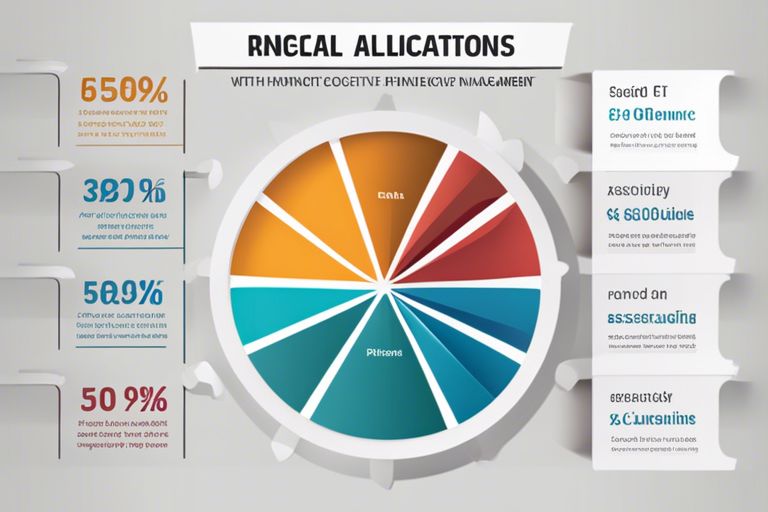It’s crucial for investors to understand that regularly reevaluating their asset allocation strategy is crucial for long-term financial success. By periodically reviewing and adjusting your investment portfolio, you can maximize returns, minimize risks, and align your investments with your financial goals. In this blog post, we will explore the importance of revisiting your asset allocation and the benefits it can bring to your overall financial well-being.
Key Takeaways:
- Optimizing Performance: By regularly reevaluating your asset allocation strategy, you can ensure that your investments are properly diversified to maximize returns and minimize risks.
- Adapting to Changing Goals: Life circumstances, financial goals, and market conditions can evolve over time. Reassessing your asset allocation allows you to align your investments with your current objectives.
- Managing Risk: Periodically reviewing and adjusting your asset allocation helps you maintain a balanced portfolio that can withstand market fluctuations and economic uncertainties.
Understanding Asset Allocation
Definition and Importance of Asset Allocation
The asset allocation is the process of spreading your investments across different asset classes such as stocks, bonds, and cash in order to manage risk and achieve financial goals. It is a crucial strategy as it helps investors balance the risk and return in their investment portfolios.
Key Components of an Asset Allocation Strategy
One key component of an asset allocation strategy is determining your investment goals, time horizon, and risk tolerance. These factors will guide you in choosing the appropriate asset classes and allocation percentages for your portfolio.

The Benefits of Regular Reevaluation
Assuming you have already established an asset allocation strategy for your investment portfolio, it is imperative to understand the importance of regularly reevaluating this plan. It is not enough to set it and forget it. Markets are constantly evolving, and your financial goals may change over time. Revisiting your asset allocation allows you to ensure that your investment strategy remains in line with your objectives and risk tolerance.
Adapting to Market Changes
Any savvy investor knows that markets can be unpredictable. By regularly reassessing your asset allocation, you can mitigate potential risks and capitalize on opportunities that arise due to market fluctuations. Keeping a close eye on your portfolio and making adjustments as needed can help you stay on track towards your financial goals.
Aligning Investment with Life Stages and Goals
For individuals at different stages of their lives, financial goals and risk tolerance levels can vary significantly. Aligning your investment strategy with your life stages and goals is crucial to ensure that your portfolio remains in sync with your evolving needs. As you progress through life, your investment priorities may shift, and it is imperative to adjust your asset allocation accordingly.
Another important aspect of regularly reevaluating your asset allocation is the ability to capitalize on long-term growth opportunities while also safeguarding your investments during times of increased volatility. By assessing your goals and risk tolerance periodically, you can make informed decisions that support your financial objectives.
The Reevaluation Process
Once again, I cannot emphasize enough how crucial it is to regularly reevaluate your asset allocation strategy. Market conditions change, your financial goals may evolve, and your risk tolerance could shift. By reevaluating your asset allocation periodically, you ensure that your investments align with your current circumstances and objectives.
When to Reevaluate Your Asset Allocation
For optimal results, reassess your asset allocation at least once a year. However, certain life events may necessitate a more immediate review. Some examples include getting married, having children, changing jobs, nearing retirement, or experiencing a significant windfall or loss. In these cases, it is vital to evaluate whether your current asset allocation still fits your new situation.
Steps Involved in Reevaluating Asset Allocation
Steps involved in reevaluating asset allocation can be broken down into several key actions. Reevaluate your financial goals, risk tolerance, and time horizon. Analyze the performance of your current investments and consider any changes in economic conditions or market trends. Finally, adjust your asset allocation accordingly to realign with your objectives and risk profile.
Challenges and Considerations
Emotional Biases and Reevaluation
Keep in mind that one of the biggest challenges you may face when reevaluating your asset allocation strategy is overcoming emotional biases. It’s natural for investors to become emotionally attached to certain investments or to be swayed by market trends. However, emotional biases can lead to poor decision-making and hinder your ability to objectively assess the performance of your portfolio.
Seeking Professional Advice for Asset Allocation
With the complexity of financial markets and the vast array of investment options available, it can be beneficial to seek professional advice for asset allocation. Financial advisors can provide valuable insights and expertise to help you develop a sound investment strategy tailored to your financial goals and risk tolerance. Additionally, they can offer guidance on rebalancing your portfolio based on changing market conditions.
Biases can also play a significant role in how individuals perceive their own financial knowledge and decision-making abilities. Seeking professional advice can help mitigate these biases and provide a more objective perspective on your investment strategy. Recall, it’s vital to choose a reputable advisor who aligns with your financial goals and values to ensure a successful partnership.
To wrap up
From above discussion, it is evident that regularly reevaluating your asset allocation strategy is crucial for optimizing your investment portfolio. By reviewing and adjusting your asset allocation based on changing market conditions, financial goals, and risk tolerance, you can ensure that your investments remain aligned with your objectives. This proactive approach can help you manage risk, enhance returns, and adapt to evolving financial circumstances. Therefore, it is highly recommended that investors regularly assess their asset allocation strategy to make informed decisions and achieve long-term financial success.
FAQ
Q: Why is regularly reevaluating my asset allocation strategy important?
A: Regularly reevaluating your asset allocation strategy is crucial because market conditions and your financial goals can change over time. By reassessing your asset allocation, you can ensure that your investments remain aligned with your objectives and risk tolerance.
Q: How often should I reevaluate my asset allocation strategy?
A: It is recommended to reevaluate your asset allocation strategy at least once a year. However, major life events such as marriage, having children, changing jobs, or nearing retirement may also warrant a reassessment of your asset allocation.
Q: What are the benefits of regularly reevaluating my asset allocation strategy?
A: By regularly reevaluating your asset allocation strategy, you can optimize your investment portfolio to better weather market fluctuations, minimize risk, and maximize returns. Additionally, staying proactive in monitoring and adjusting your asset allocation can help you stay on track to meet your financial goals.




